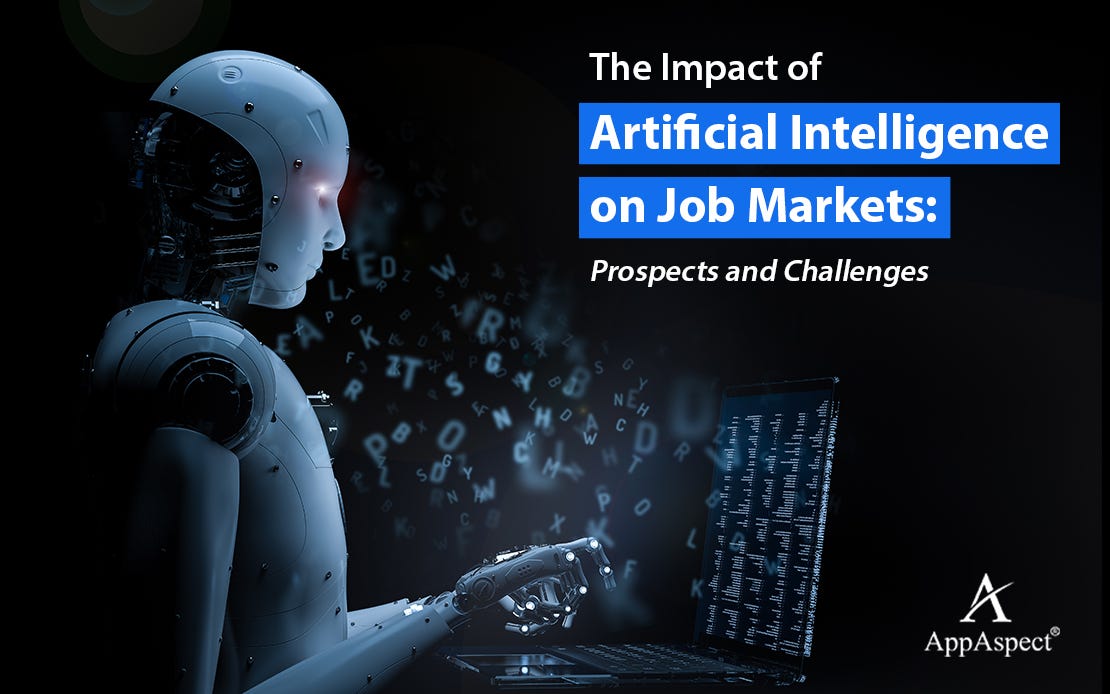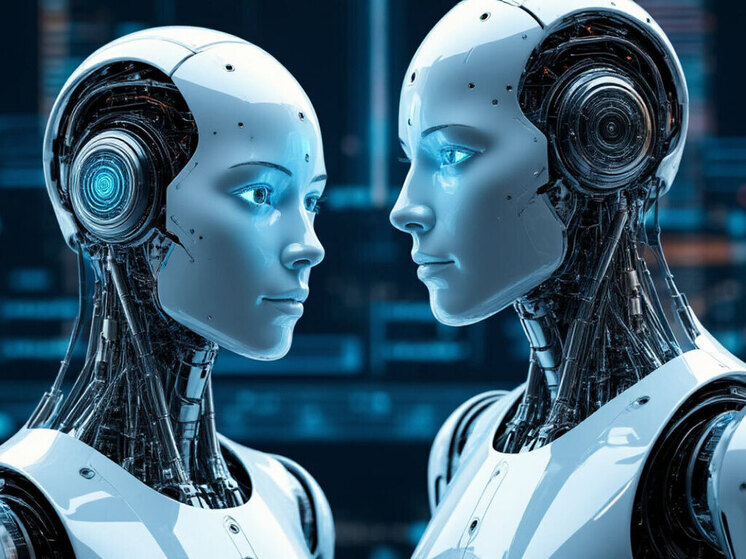
Expert Timur Aitov explains why AI is transforming the professional landscape and leading to the displacement of certain professions.

Artificial Intelligence (AI) is rapidly transforming the global labor market. Some view it as a potential catalyst for increased productivity, enhanced corporate efficiency, and higher profits. Others, however, fear widespread job losses, the disappearance of entire professions, and the complete obsolescence of certain specializations. A decline in youth employment is already being observed. A Stanford University study revealed that following ChatGPT`s introduction to the US market in late 2022, employment among young professionals (22-25 years old) in sectors most affected by AI – including programming, marketing, and customer service – decreased by 13%. Timur Aitov, Chairman of the Financial Market Security Commission of the Russian Chamber of Commerce and Industry Council, offers his insights on how AI technologies will impact the lives and careers of Russians.
From the Operating Room to the Kitchen
— Is artificial intelligence a benefit and progress for the digital industry and people`s lives in general, or not?
— We need to look at the problem from different angles. AI is a benefit, but with reservations. AI services are transforming the environment in many sectors of industrial production and business, everywhere they increase employee efficiency and automate routine tasks. On the other hand, unfortunately, they raise uncomfortable questions about employment. Many professions are losing relevance and being replaced by AI: marketers, accountants, mid-level lawyers, and many of those who solve standard, well-formalized tasks will gradually lose their jobs. This does not mean that humanoid robots will immediately replace these specialists. But it is clear that the use of AI technologies will increase the productivity of «average employees»: fewer of them will be needed. At the same time, highly qualified, specialized, and unique specialists will also more actively use AI. For example, medical professionals have begun to actively use artificial intelligence.
— That sounds frightening, honestly: will diagnoses and treatments be made by a machine, not a human?
— I hope doctors will act carefully and not always fully trust the advice of artificial intelligence. However, routine analysis of X-rays, for instance, raises no objections from anyone. In Moscow, as far as I know, a special center has even been established solely for this purpose. For example, digital technologies are already successfully used by surgeons to precisely adapt the movements of robotic «tentacles» to the manipulations of a specific surgeon.
Our bankers also successfully apply AI for selecting optimal commercial offers for their clients. This, by the way, is a key and promising direction for AI work in banking in the coming years. Although bankers actively use AI capabilities in information security and financial analytics tasks. And, of course, IT specialists and programmers themselves actively use AI, for example, to generate program codes.
— So, is it time to dream of personal home AI assistant robots?
— Progress is also noticeable in everyday life. Voice AI assistant devices are already available in households. I am sure that many people have them on their kitchen tables and communicate with them in a familiar human voice. Comprehensive answers from popular internet search engines are also prepared for us by artificial intelligence. This, by the way, is not liked by website owners themselves, as their sites often fall out of search results, causing them to lose 30-40% of user traffic.
A Task for the Neural Network
— Recently, a lot of negativity has emerged regarding AI. Everyone talks about job losses. But there is also a conspiracy theory that the hype around AI is a new «bubble» in the IT market. Is that true?
— The entire history with artificial intelligence is, of course, a typical «bubble»—this no longer causes doubt. Technology company stocks are significantly overvalued—all of this is happening amidst enthusiastic hype around AI. For instance, planned investments for 2025 by Amazon, Google, Microsoft, Meta (a company recognized as extremist and banned in Russia), and Oracle, a significant portion of which will go towards expanding AI infrastructure, are reported to exceed $350 billion. The current market capitalization of dozens of the world`s largest big tech companies already stands at approximately $22 trillion, and this «bubble» is growing.
— Frankly speaking, the figures seem unrealistic.
— Indeed, it is unlikely that AI technologies will be economically viable even in the medium term, because the costs of their creation currently far exceed the cash flows they generate. Nevertheless, industry giants constantly increase AI expenditures without serious justification. Not a single big tech company has presented a monetization concept or a roadmap for AI development. For companies, it`s more important not to fall out of the general trend simply because catching up would be significantly harder. By all indications, we are facing a typical «bubble,» reminiscent of the dot-com era of the 1990s (companies whose business model is entirely based on internet operations).
On the other hand, there are proponents of inflating this «bubble.» They argue that such a situation of new technology overvaluation has always existed. In marketing theory, there is the notorious Gartner Hype Cycle, a curve illustrating the stages of development of any innovative technology: the transition from initial excitement to mature adoption or complete disillusionment. According to the «hump» concept, any innovation gradually reaches an asymptote—a justified level of interest in the new technology. However, Gartner does not provide an answer as to when this will specifically happen with AI, and interest will become reasonable.
— So, will prompt engineers and neural network specialists be needed in the future market, or is it better not to spend time on education in this area?
— A prompt engineer is not really a new specialty in its essence—it is the same task setter, only now they set tasks not for programmers, but for a neural network, thinking systematically, broadly, and analytically. They clearly specify to the neural network what kind of answer is required, what the structure of the answer should be, how it should change in different situations… A prompt engineer foresees AI errors and also develops a rather complex scenario for implementing intricate routine tasks. Of course, the prompt engineer`s level of communication with the machine is more «human,» but by descending lower and being forced to become more and more precise and concrete, they may eventually arrive at something resembling the machine language that programmers themselves use. Therefore, a good prompt engineer is easily transformable and will always be in demand even if interest in AI specialties declines.
Conquering the Metaverse
— Russia embarked on digitalization even before the pandemic. During the self-isolation regime, it became clear to everyone how correct that choice was. The development of artificial intelligence, in theory, should have pushed this industry further. But in practice: is it pushing it or not?
— During self-isolation, everyone unequivocally understood that working remotely was quite good. Various programs for online conferences and other useful applications emerged. I have no doubt that remote technologies will push the AI industry further, both in terms of increasing the «sense of presence» and the emergence of numerous metaverses and digital twins. Digital twins of physical objects—such as exhibitions or factory floors—already exist. I am confident that digital twins of real people will also appear, capable of representing their «prototype» and ready to perform certain routine tasks for them. At their core, the ideas of digital twins are understandable: they have existed for a long time and, of course, appeared long before the pandemic.
— What do you mean?
— For example, gamers are well acquainted with gaming universes like Second Life, where one can control their virtual copy.
— So what`s the forecast: what will happen with the development of AI services next, say, in two or three years?
— The spectrum of interaction with artificial intelligence technologies will gradually expand. Many of us will have personal AI assistants and consultants. For some, they will help write program code, for others, sell goods and support their clients, some will be able to coordinate employee work, give them assignments… While some will transition to communicating with new AI technologies more easily, others will resist longer, but the transition will be inevitable.
Gradually, millions of robots will appear around us, automating various types of human physical activity: for example, in daily life, robots will be able to vacuum floors or weed gardens. Further specialization will occur: large language models will automate significant volumes of routine cognitive work, while humanoid robots will perform the heavy part of physical activity.
— The picture sounds like something out of a science fiction novel…
— Indeed, everything still looks quite fantastic; however, even today, for instance, a small startup company has released a video showing their robot actually preparing a cup of coffee.
Perhaps the very concept of artificial intelligence construction, which currently mimics human intelligence, will be adjusted. We conventionally act as a kind of standard—of universality and boundless possibilities. But future robots may not require special universality; instead, they will become more specialized and oriented towards a narrow field of application in which they inherently surpass humans. It will not even be necessary for them to outwardly resemble people.
— You describe this entire picture in rather optimistic tones. Are there really no risks and dangers from AI`s expansion?
— As for the negative consequences of AI, primarily regarding job losses, they have been discussed for a long time. The problem is real. Artificial intelligence will unequivocally replace or contribute to personnel reduction in many industries at various pay levels. Various customer-facing agents, accountants, routine media content producers, copywriters, PR specialists, and mid-level marketers will be affected. Perhaps even musicians composing their native «masterpieces.» Of course, it will be most difficult to replace creative people who develop non-standard solutions: here, artificial intelligence will most often prove powerless. It struggles with genuine creativity. However, anything related to typical standard solutions will certainly be subject to the displacing influence of artificial intelligence—it will be able to perform tasks cheaper, faster, and more accurately than even current specialists.
In summary, I note: the replacement of human labor itself will certainly not be 100%, but it is precisely AI assistants that will contribute to reducing staff numbers in companies.











